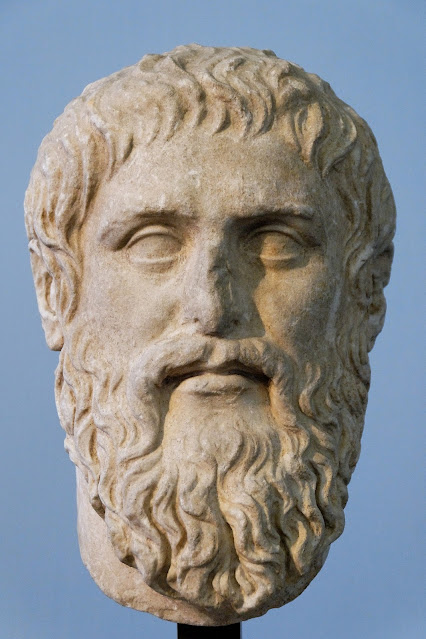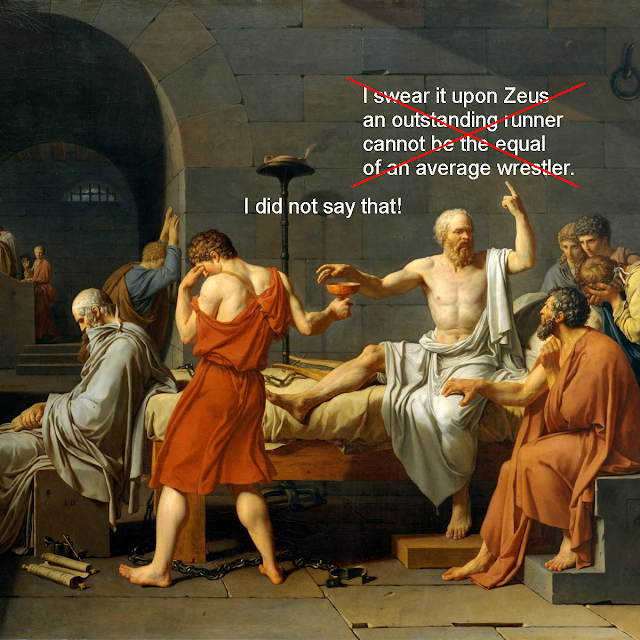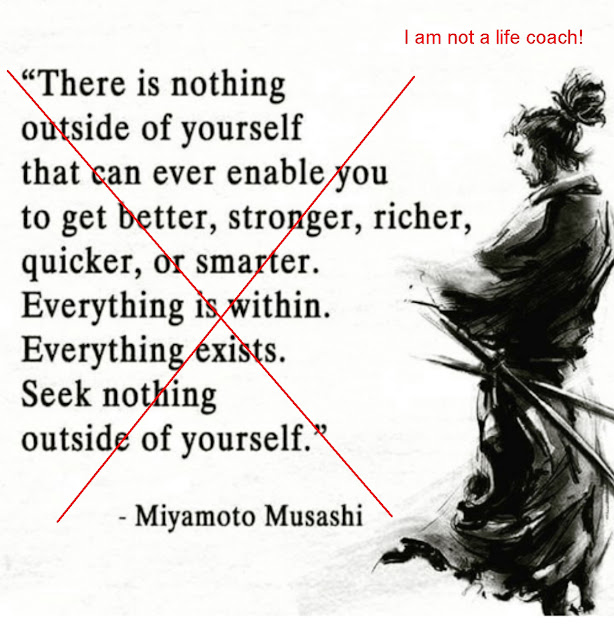I Swear It Upon Zeus, Socrates Did Not Favor Wrestlers over Runners
Did Socrates really say "I swear it upon Zeus, an outstanding runner cannot be the equal of an average wrestler"?
TL;DR: The image says it all. For the research, and what Socrates and others really said about wrestlers and runners, read on!
Introduction
Recently I debunked a quote falsely attributed to a Japanese thinker and warrior, so I thought it was time to do the same for a Greek thinker and warrior -- Socrates.
First, some background. Socrates was a Greek philosopher who lived from approximately 470 BC to 399 BC. He did not write anything on his own, or at least nothing he wrote survives to this day. Everything we know about him comes from his students and biographers. Chief among these are students Plato and Xenophon, and biographers Plutarch (46 AD to about 119 AD) and Diogenes Laërtius (third century AD) and Plutarch.
To see if Socrates said anything like the quote attributed above, I queried many sources online, and then I reviewed the following works. Each initially showed some content involving Socrates and wrestling:
- Plato's Statesman
- Plato's The Republic
- Plato's The Apology
- Plato's Alcibiades I
- Plato's Meno
- Plato's Lesser Hippias
- Plato's Laches (Courage)
- Plato's Sophist
- Plato's Charmides
- Plato's Laws
- Xenophon's The Memorable Thoughts of Socrates and The Memorabilia
- Xenophon's The Apology
- Xenophon's The Economist
- Xenophon's The Symposium
- Xenophon's Hellenica
- Diogenes Laërtius' The Lives and Opinions of Eminent Philosophers
- Plutarch's Morals
- Plutarch's Essays and Miscellanies
- Aristophanes' Eleven Comedies
- Aristotle's A Treatise on Government
- Marcus Tullius Cicero's Tusculan Disputations
- Voltaire's Socrates
- S. G. Goodrich's Famous Men of Ancient Times
Socrates on Running and Wrestling: Everything Is Beautiful, In Its Own Way
 |
| Greek Wrestlers, 510-500 BC, https://commons.wikimedia.org/wiki/File:07Athletengrab.jpg |
In Xenophon's The Memorable Thoughts of Socrates, we read an exchange between Aristippus and Socrates:
"“Would you say,” pursued Aristippus, “that the same thing may be beautiful and ugly at once?”
[Socrates:] “I would say that it might be good and bad. Often what is good for hunger is bad for a fever; and what is good for a fever is very bad for hunger;
often what is beautiful to be done in running is ugly to be done in wrestling; and what is beautiful to do in wrestling is ugly in running.
For all things are reputed beautiful and good when they are compared with those which they suit or become, as they are esteemed ugly and bad when compared with those they do not become.”"
In the same work, using another translation called The Memorabilia, the translator rendered the conversation in this way:
"Aristip. Do you mean to assert that the same things may be beautiful and ugly?
Soc. Yes, to be sure; and by the same showing things may be good and bad:
as, for instance, what is good for hunger may be bad for fever, and what is good for fever bad for hunger;
or again, what is beautiful for wrestling is often ugly for running;
and in general everything is good and beautiful when well adapted for the end in view, bad and ugly when ill adapted for the same."
According to Xenophon's writing on Socrates, Socrates considered wrestling and running to have merits, and be equally valuable.
Socrates on Running and Wrestling
Plato's Lesser Hippias has a length discussion that mentions running and wrestling as well, but they are simply examples of exercises that could be done poorly or well.
Plutarch on Wrestling
 |
| Plutarch, by "Odysses" - Own work, CC BY-SA 3.0, https://commons.wikimedia.org/w/index.php?curid=28971552 |
In Plutarch's Morals, he quotes Homer's Odyssey, saying:
"'For we are not good boxers, nor good wrestlers, nor yet swift runners,' for in all these points we are less fortunate than the beasts. But by our experience and memory and wisdom and cunning, as Anaxagoras says, we make use of them, and get their honey and milk, and catch them, and drive and lead them about at our will. And there is nothing of fortune in this, it is all the result of wisdom and forethought."
In Plutarch's Essays and Miscellanies, Plutarch takes part in a conversation debating which is older: wrestling or boxing ("cuffing" in the text), and whether or not Homer ranks boxing first, wrestling second, and racing third. Plutarch concludes:
"And therefore it is likely that cuffing is set first, wrestling next, and racing last; for the first bears the resemblance of charging or warding the blows; the second, of close fighting and repelling; the third, of flying a victorious, or pursuing a routed enemy."
This is the closest we get to one of these writers placing wrestling before running, but it's still behind boxing in this example.
Cicero on Wrestlers
 |
| Cicero, by "Glauco92" - Own work, CC BY-SA 3.0, https://commons.wikimedia.org/w/index.php?curid=5582672 |
I was surprised to learn that Cicero did not think very highly of wrestlers, writing in his Tusculan Disputations the following:
"You may often hear of old women living without victuals for three or four days; but take away a wrestler’s provisions but for one day, and he will implore the aid of Jupiter Olympius, the very God for whom he exercises himself: he will cry out that he cannot endure it.
Great is the force of custom! Sportsmen will continue whole nights in the snow; they will bear being almost frozen upon the mountains. From practice boxers will not so much as utter a groan, however bruised by the cestus."
It sounds like Cicero was also boxing man.
Plato the Wrestler, and His Words from Socrates
 |
| Plato, by "Copy of Silanion," Public Domain, https://commons.wikimedia.org/w/index.php?curid=7831217 |
According to Diogenes Laërtius, Plato was so involved in wrestling that he received the name "Platon," in place of his given name, perhaps because of his broad shoulders. (This is explained here more clearly.)
"And he was taught learning in the school of Dionysius, whom he mentions in his Rival Lovers. And he learnt gymnastic exercises under the wrestler Ariston of Argos.
And it was by him that he had the name of Plato given to him instead of his original name, on account of his robust figure, as he had previously been called Aristocles, after the name of his grandfather, as Alexander informs us in his Successions.
But some say that he derived this name from the breadth (πλατύτης) of his eloquence, or else because he was very wide (πλατὺς) across the forehead, as Neanthes affirms. There are some also, among whom is Dicæarchus in the first volume on Lives, who say that he wrestled at the Isthmian games."
Plato was definitely a wrestler, but did he saying anything relevant about Socrates' views on wrestling?
In Plato's Charmides we see Socrates engaging in another exchange that mentions running and wrestling:
"And in playing the lyre, or wrestling, quickness or sharpness are far better than quietness and slowness?
Yes.
And the same holds in boxing and in the pancratium?
Certainly.
And in leaping and running and in bodily exercises generally, quickness and agility are good; slowness, and inactivity, and quietness, are bad?
That is evident."
That's it. Again Socrates is just using these activities as examples that can be done well or poorly.
Conclusion
 |
| Battle of Potidaea (432 BC): Athenians against Corinthians (detail). Scene of Socrates (center) saving Alcibiades. 18th century engraving. |
Socrates served as a hoplite in the Peloponnesian War (431–404 BC). People who have fought in those sorts of battles tend to emerge a little wiser than those without similar experiences. Thus, when I read the original quote that prompted this research, I had a tough time believing Socrates would invoke Zeus' name when putting down runners versus wrestlers. It did not fit the character of the man of whom I knew only a little. I hope after reading this post we can remember his words:
"[O]ften what is beautiful to be done in running is ugly to be done in wrestling; and what is beautiful to do in wrestling is ugly in running.
For all things are reputed beautiful and good when they are compared with those which they suit or become, as they are esteemed ugly and bad when compared with those they do not become."
Notes
The image at the top of the post is The Death of Socrates (1787), by Jacques-Louis David.
Also, I confirmed that "cuffing" was an old term for boxing, from the book 1720 The History of Duels, which includes the following:
 |
| The History of Duels, in Collectanea Adamantaea, 1888 |
If you like this article, check out our Facebook page, Instagram account, and Twitter feed. Be devoted!




Comments
Post a Comment